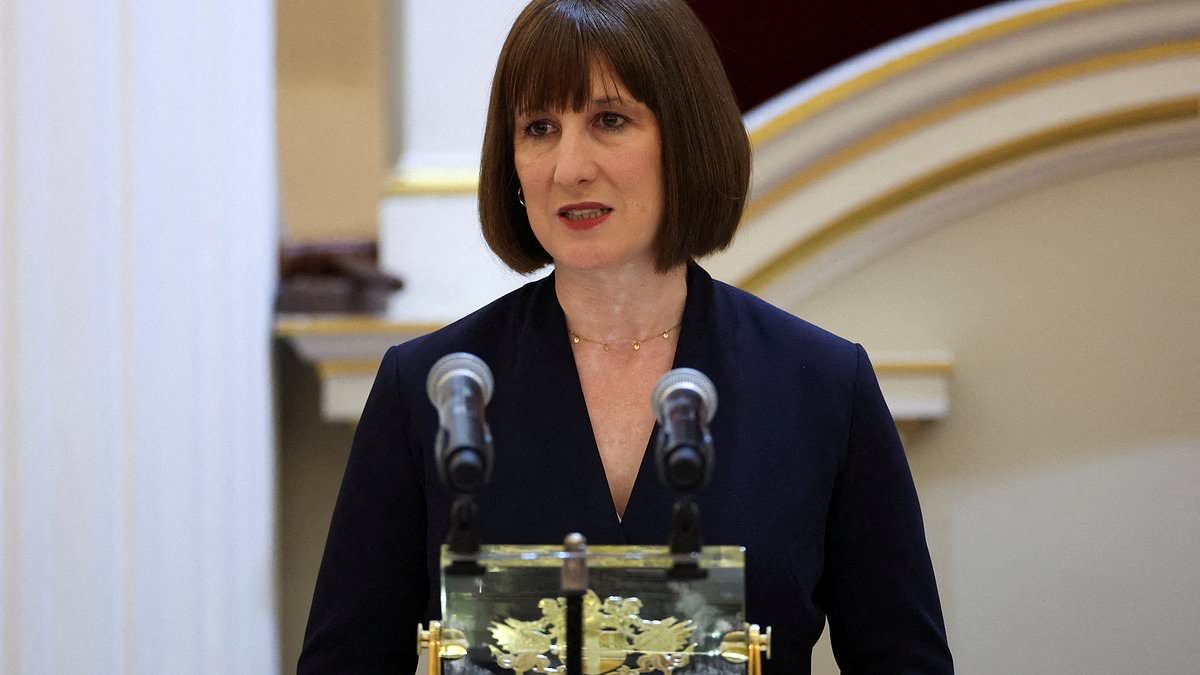Rachel Reeves is facing Cabinet anxiety over Labour’s market chaos as she defies a backlash to head for China.
The Chancellor is en route to Beijing despite demands to cancel the trip and deal with mounting pressure on the UK’s fiscal position.
Another volatile day yesterday saw the pound fall sharply against the dollar and Government borrowing rates creeping up again – although the mood settled somewhat in afternoon trading.
The yield on a 10-year gilt rose further to 4.85 per cent this morning, while for 30-year the level was up to 5.41 per cent. Sterling was also slightly lower.
Although similar moves have been seen globally and the mood seemed to ease by the afternoon, there is alarm that the huge tax, borrow and spend Budget has left Britain exposed.
Economists have warned that with growth stalling and inflation ‘sticky’, higher costs of servicing debt are likely to force Ms Reeves to choose between cutting spending plans or hiking the tax burden further.
Comparisons have even been made to the 1976 crisis when Labour’s Denis Healey humiliatingly had to turn to the IMF for a bailout. The combination of the currency weakening and gilt yields rising has caused particular concern.
There are signs that Ms Reeves is losing the confidence of her own colleagues, with a Cabinet source telling The Times: ‘They’ve lost the plot’.
Another swiped that the Treasury is ‘in make-or-break territory now’, while a third worried: ‘This is all starting to look like Healey having to come back from Heathrow, isn’t it?’
Ms Reeves has departed on her trip to China, despite calls for her to stay in the UK to ‘fix the mess her Budget created’.
Culture Secretary Lisa Nandy defended proceeding with the visit during a round of interviews this morning, telling Sky News: ‘China is the second largest economy, and what China does has the biggest impact on people from Stockton to Sunderland, right across the UK, and it’s absolutely essential that we have a relationship with them.
‘We need to make sure that the UK economy remains competitive, we need to challenge where we must, including in the area of human rights, but we also need to make sure that we are working with China on those areas of shared interest.’
Shadow Chancellor Mel Stride said the public were having to ‘pay the price for yet another socialist government taxing and spending their way into trouble’.
He said the rise in borrowing costs threatened to ‘swallow up’ the proceeds from the record tax rises imposed at the Budget, and suggested the market turbulence was likely to ‘impact mortgage costs and lending across the economy’.
Ms Reeves ducked a Commons debate on the crisis to prepare for China trip, where she hopes to strengthen trade ties despite the communist regime’s dire human rights record – and warnings that cosying up to Beijing could undermine the UK’s national security.
Sir Iain Duncan Smith, one of several MPs sanctioned by Beijing for speaking out on human rights, said: ‘The Chancellor should not go to China.
‘The trip is pointless – as the disastrous ‘Golden Era’ showed, the murderous, brutal, law-breaking, communist regime in China will not deliver the growth the Labour government craves. Instead, she should stay home and try to sort out the awful mess her Budget has created.’
Former Treasury select committee chairman Harriet Baldwin accused the Chancellor of ‘fleeing to China’ after realising ‘she is the arsonist’ with the economy.
Martin Weale, a respected former member of the Bank of England’s rate-setting monetary policy committee, told Bloomberg News: ‘We haven’t really seen the toxic combination of a sharp fall in sterling and long-term interest rates going up since 1976. That led to the IMF bailout.’
He added: ‘So far we are not in that position but it must be one of the Chancellor’s nightmares.’
Nigel Green, chief executive of financial advisory firm deVere, added: ‘The Chancellor’s inability to reassure markets is fanning fears of an economic implosion, with austerity looming as the only option to restore credibility – a brutal throwback to 1976.’
The warnings are the latest to conjure up the spectre of the 1970s when Britain last suffered a crippling bout of ‘stagflation’, in which rising prices couple with low growth to produce an economic doom loop.
